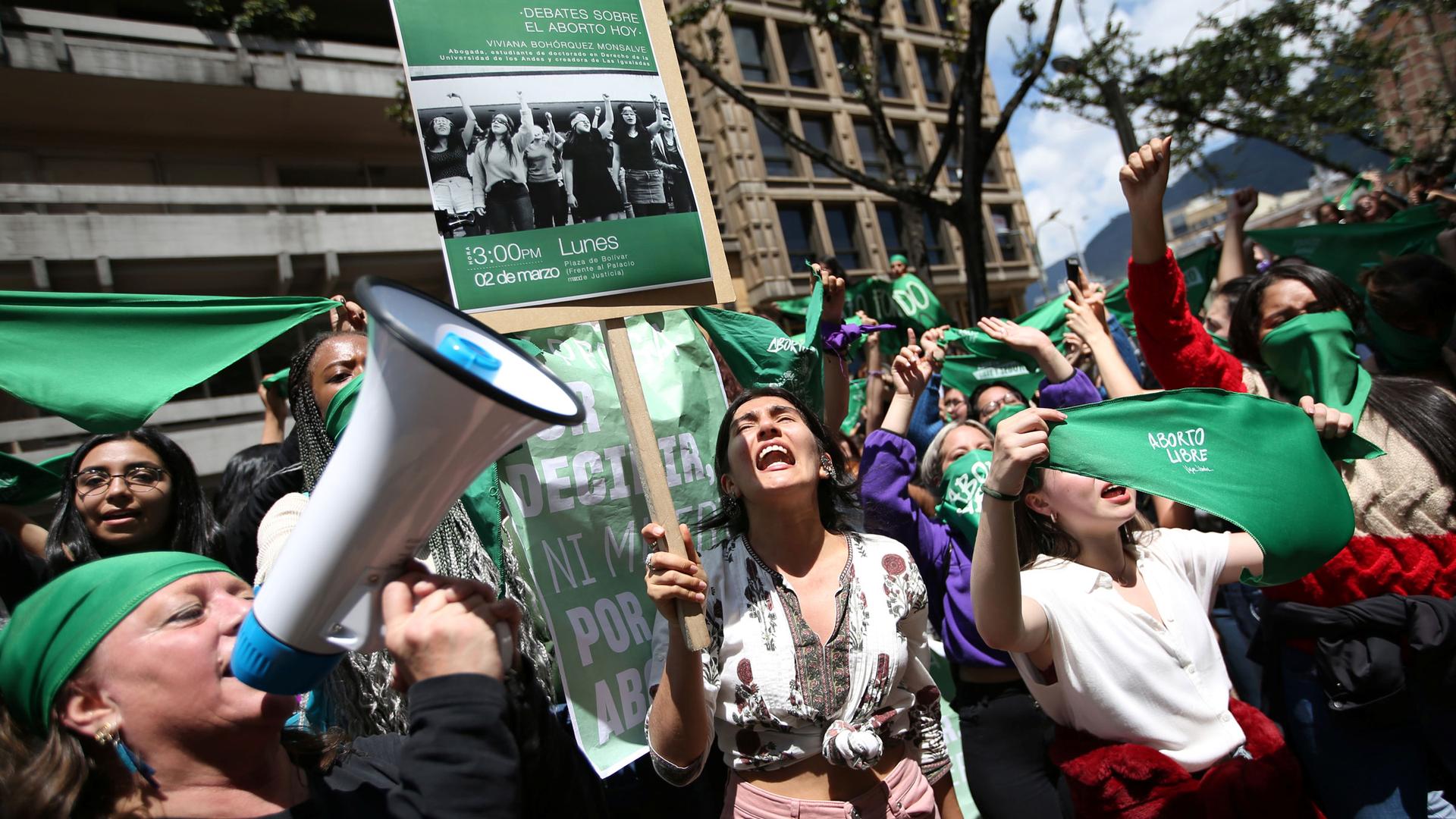Two key decisions on abortion in Colombia and Argentina this month
The morning after Colombia’s Constitutional Court upheld a restrictive abortion law this week, two Congress members from opposing parties phoned into one of the country’s most popular radio shows and debated the decision.
Rep. Juanita Goebertus, a member of the left-leaning Green Alliance party, favored expanding women’s access to abortion procedures, while Sen. Jhon Milton Rodríguez, a member of the evangelical Free and Just Colombia party, favored further restricting access.
Goebertus and Rodríguez answered questions from the hosts of radio station La W’s morning program about abortion access in Colombia. But when they were asked about it legally being a right, the conversation quickly devolved into an almost indiscernible crossfire of Goebertus saying Rodríguez was entitled to his own opinion, but not his own facts, and Rodríguez telling her he just wanted to explain things to her.
Related: ‘Maternity jail’: Women in US, Argentina, finds ways around restrictive abortion laws
Just before the hosts wrapped up the segment, Goebertus read from an earlier court ruling: It referred to abortion as a “right.”
Debate over abortion rights across Latin America, as in other parts of the world, has often been adversarial, and supporters and opponents from across the continent followed the Colombian court’s decision. They are looking forward to pending legislation that would legalize elective abortions in Argentina.
On Monday night, Colombia’s Constitutional Court voted to uphold a previous ruling that allows the procedure when a woman’s life is at risk, the fetus is malformed or the pregnancy is a result of rape.
Tens of thousands of women in both countries have been taking to the streets to demand legal access to reproductive health rights, but have faced opposition, as public opinion is mixed in their largely Catholic and often conservative societies. In Colombia, less than half the people polled by the magazine Semana in 2017 believed a woman should not go to jail for having an abortion.
Related: Photos: The women of Argentina’s abortion debate
“When you talk about abortion, it becomes very heated, very fast,” said Dr. Maria Vivas, a physician who directs the Bogotá-based Fundación Oriéntame, which provides women’s health services, including abortions.
Some 400,000 induced abortions are performed in Colombia every year, and only a fraction of them are done legally, according to the US-based Guttmacher Institute. About a third of women who have illegal procedures experience complications that require medical attention, according to the institute.
“If you pay attention to the arguments to decriminalize, to totally decriminalize abortion, they’re robust, public health-based arguments,” Vivas said.
In Argentina, President Alberto Fernández said on Sunday that he will send a bill to Congress to legalize abortion. The pending legislation follows years of demonstrations that have been led by feminist groups across the country, said Victoria Freire, who runs the Observatory for Gender and Public Policy, a think tank in Buenos Aires.
“The law is possible not only because of this new political willpower,” Vivas said.
Similarly to how the #MeToo movement in the United States or protests against femicide in Mexico have gotten some response from lawmakers in those countries, Vivas said, feminist movements are transforming life across the continent.
